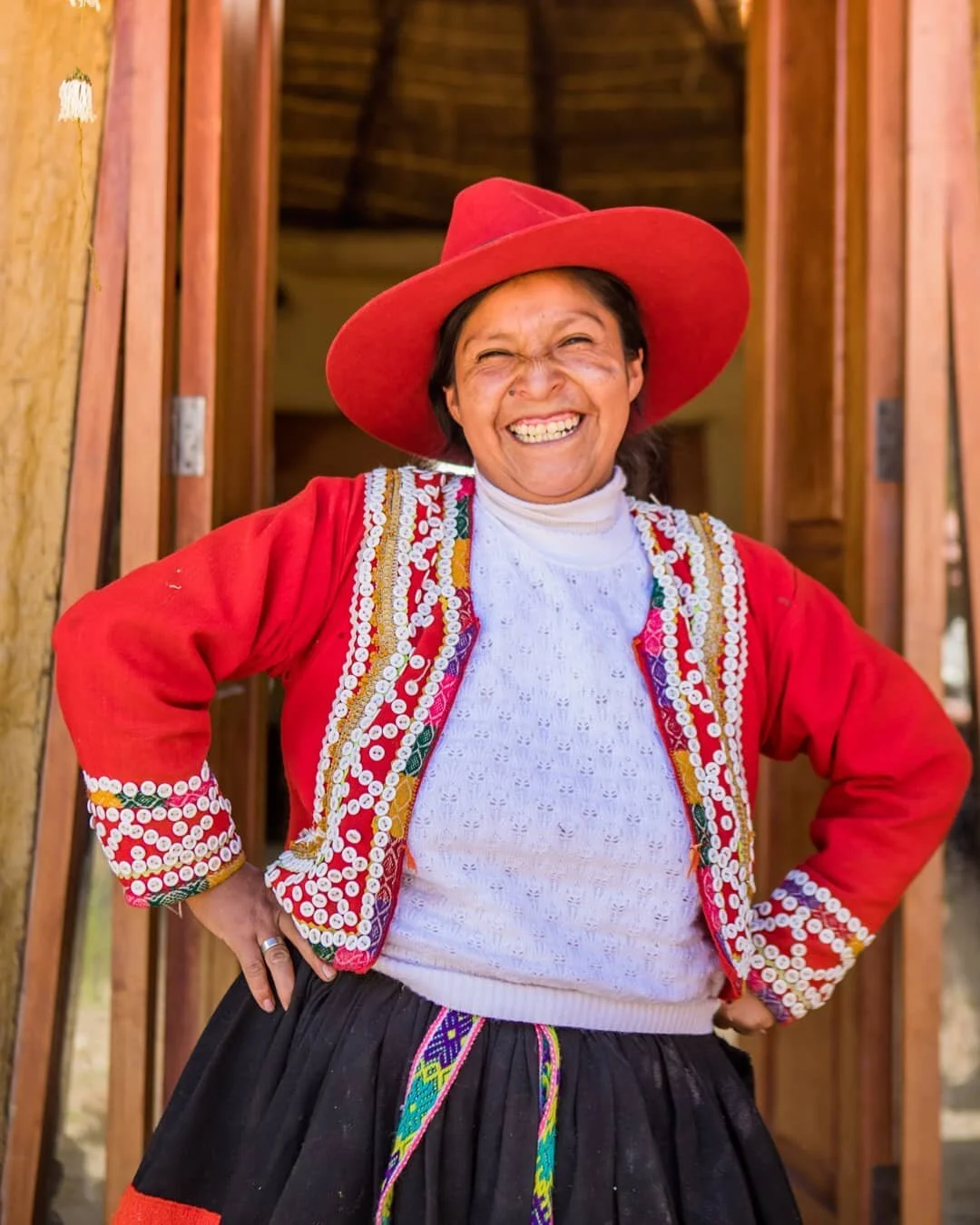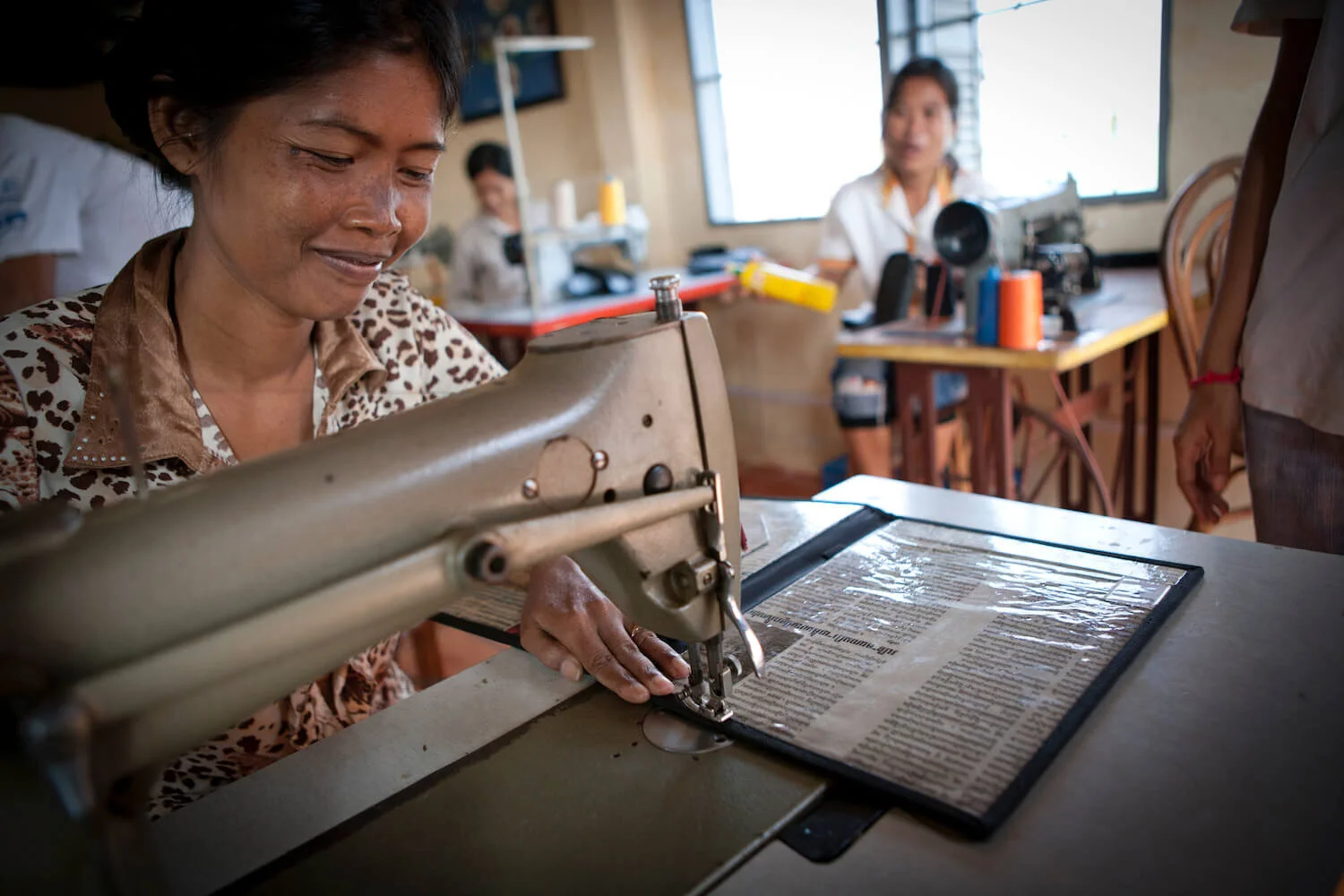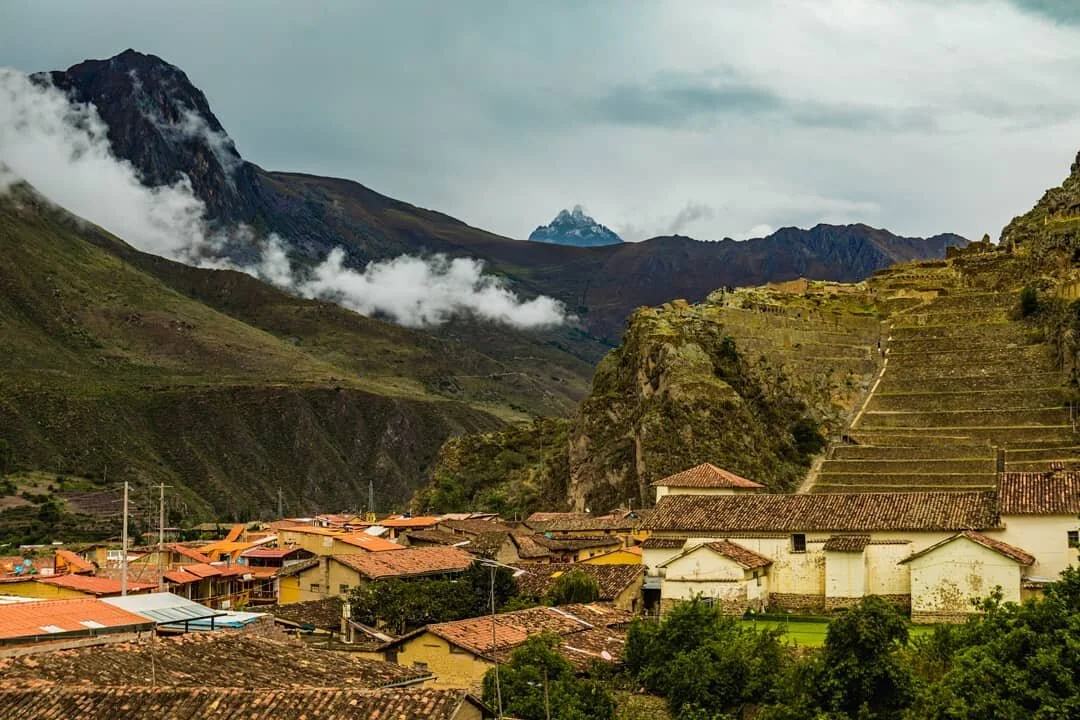A Social Mission Behind E-Commerce with Global Goods Partners
Another addition to our Women At Work series, we had Stephanie Harrison join us from Global Goods Partners. This e-commerce shopping site is focused on bridging gaps, opening doors and providing opportunities for artisan women to join the international marketplace. Global Goods Partners (GGP) is committed to providing sustainable jobs for women—widely proven to be the key to community development and family wellbeing. In partnership with women-led, community-based organizations, GGP taps into the rich well of skill and artistry that is passed from one generation of women to the next.
Read on below to learn a little bit more about Global Goods Partners and how they put a social mission behind everything that they do.

Ph. Courtesy of Global Goods Partners
GLOBAL GOODS PARTNERS WITH STEPHANIE HARRISON
1. Can you explain a little bit about What Global Goods Partners does?
Put simply, we partner with women artisans all over the world and sell their handmade products on our website. But there's so much in that; we're a fair trade non-profit organization which means we are members of the Fair Trade Federation and abide by the 9 principles of fair trade, which include paying all makers fair living wages in safe work environments, building capacity and creating economic opportunities, in our case for women weavers, knitters, felters, sewers, embroiderers.
2. How many artisans do you work with and from where?
We started with just a few groups back in 2005, and we now partner with 35 women-led cooperatives, who collectively work with over 20,000 women, so our network is huge and makes up the production for our retail and wholesale business as well as custom orders. We partner with women-led cooperatives in 20 countries across Asia, Africa & the Americas. Two of our largest groups are in Nepal, we have bags from Ghana and Madagascar, jewelry from Guatemala and Kenya, and kids' product from Peru.

Ph. Courtesy of Global Goods Partners
3. How do you choose your artisans/artisan goods to feature on your website?
It's a mix! Our founders, Joan Shifrin and Catherine Shimony, have decades of experience in international development where they met many of our artisan groups on the ground when GGP was first founded 15 years ago. From there, we had still been meeting groups on the ground in-country until travel was recently halted. As well as having groups referred to us and meeting them at trade shows also.
4. On your website you have featured 9 ethical black owned businesses on your homepage as a tribute to the Black Lives Matter movement. Can you chat about some of those businesses and why you chose to feature them?
Yes, we published a blog with these 9 brands that we love. And I think representation in fair trade and ethical production is so important. Two things in particular on why that is so:
Firstly, and this is spoken about in depth from Jazmine Rogers of That Curly Top - the fast fashion industry is fully reliant on women of color both overseas and in the US. These are mostly garment workers who are underpaid and working in terrible conditions, for excessive hours to produce cheap products. So highlighting brands with Black women at the forefront is not only important now but has been ever since the beginning of "fair trade", which, shared by our friends at a company called Fair Anita this week, actually has its roots much earlier than we had first thought. In the late 1820s, when the Free Produce Movement began to boycott products made from U.S. slave labor, supporters of this movement wanted to be paying true costs and valuing honest labor which are the cornerstones of fair trade.
So these brands that we chose to honor this week range from being wholesale stocklist of ours, artisan groups with which we have worked, and neighborhood loves of ours.

Yolanda, Awamaki Weaver
5. Just like Andeana Hats, Global Goods are supporting female artisans and helping to give them income opportunities and lift them out of poverty. Can you tell us the importance of helping to support women globally?
Globally, women and children suffer disproportionately from economic, environmental, political, and social hardships. When women receive the tools to learn a craft, manage their finances, or start and run a business, they gain experience, confidence, practical skills, and economic independence. These skills and experiences enable women to move beyond achieving simple economic improvements to making a real positive impact on the well being of their families and their communities.
From the beginning, we have always wanted to support women and women-led cooperatives, in particular, to nurture entrepreneurs and provide sustainable income opportunities which have proven to be gateways into many other benefits for these women, their families, and their communities.

Ph. Courtesy of Global Goods Partners
6. I was speaking with a woman once that worked for the Nature Conservancy and I asked her what issue would she focus on first to help solve environmental issues across the globe and she said "educating women." What are your thoughts on the importance of educating women and the ripple effect it has on other global issues?
Yes, it's been said that education is a passport to the future and the most powerful weapon to change the world. Educating women is definitely adjacent to our mission - equipping women with tools to move forward and build their own futures. For us, especially in training, we have found that specific education on natural materials and natural dyes has truly helped to transform working conditions and artisan health, as we steer away from toxic dyes and fumes produced by conventional production. What these women have learnt in their skills training has been transformational in their everyday lives.
7. I see that Global Goods offers grants to different partners around the world. Can you chat about your different partners and what those organizations do?
On top of the education I just mentioned, we are invested in children's education grants and a program called "Healthy Homes" with our Guatemalan partners. This has been one of the deepest dives into education that we have worked on, as it permeates both nutritional health, exercise, and practical changes like smokeless stoves, water filtration, organic gardens, and solar kits, that have been part of an ongoing grant to our partners in Guatemala. Other grants have included eye exams and prescription glasses for knitters in Bolivia, and emergency relief grants, such as earthquake relief in Nepal, and more recently COVID-related relief. You can read more about our grants here.
8. How has COVID affected Global Goods and your artisans? In what ways have you had to adapt?
Yes, every single one of our partner groups has been affected in one way or another, whether that be with nationwide lockdowns, local markets closed, shipping and freight restrictions. Thankfully, no one has been infected but everyone is dealing with being affected. To adapt, many of our groups are delegating production pieces to artisan working more from home, and working earlier on holiday samples.

9. Many brands overuse the word Sustainable. What does the term "sustainability" mean to you and in what ways does Global Goods Partners practice sustainability?
Absolutely! There is a new buzzword every few years and "sustainability" is having its moment right now. To me, sustainability must be two-pronged: it needs to include both sustainable production and sustainable income, and that is the way that we use it in our messaging. Even if you have the most eco-conscious, environmentally-friendly products, you can't have a truly sustainable supply chain if the people making the product are not earning a fair living wage and are safe at work.
For example, our Recycled Tire collection is a best-selling assortment for men's gifts. These discarded motorcycle tires are collected from dumps and tips in Cambodia, deeply washed and cleaned, cut and assembled into travel bags, dopp kits, and wallets. It's full-circle in an environmental sense - reducing and reusing something that was already waste - but these products are made truly sustainable by how the makers are treated and paid.
10. We need more "feel good stories" right now. Tell us some "success stories" of how Global Goods has positively affected the lives of some of your artisans.
One of my favorite stories comes from a trip that our Director of Design, Jenn, and I took to Guatemala in 2017. We met with a group of weavers in Panajachel, right on Lake Atitlán, and spent the afternoon with them. One woman in particular, whose name is Micaela, showed us (and attempted to teach us) how to weave on the backstrap loom. She also let us know that she had recently graduated from elementary school.
She had not had the chance to go to school when she was a girl, but as she began to take on more responsibilities at work in office duties and invoicing, she decided that she would begin to study. At the age of 33 she began elementary school, not knowing how to read or write. Over the past few years, we've kept up with Micaela's story and have loved getting updates! She completed six grades in three years, and is continuing on to middle school and high school with a goal of going to college.

11. Who are 3 women (that you know) that inspire you and give them a shout out!
I love this! My three women are:
Manpreet Kalra (IG: manpreetkalra) who is an incredible speaker and friend, particularly in topics of ethical storytelling, appropriation vs. appreciation in the fair trade world, and racial justice.
Christina Montes (IG: studiomontes) who is actually GGP's photographer and dear supporter. She is a talented illustrator, tattoo artist and all-round beautiful person.
Maria Diaz (IG: searchingformaria) who has been a GGP model in the past and uses her modelling platform to speak out against injustice and fill her space with resources, knowledge, and appreciation of brands and people who are doing good.
Thank you Stephanie for the very insightful interview showcasing the social mission work you do behind e-commerce and Global Goods Partners. For more information about Andeana Hats, you can a Shop Andeana Hats or learn more about our Intention Bands by clicking the links. Contact Us if you have any other questions.







